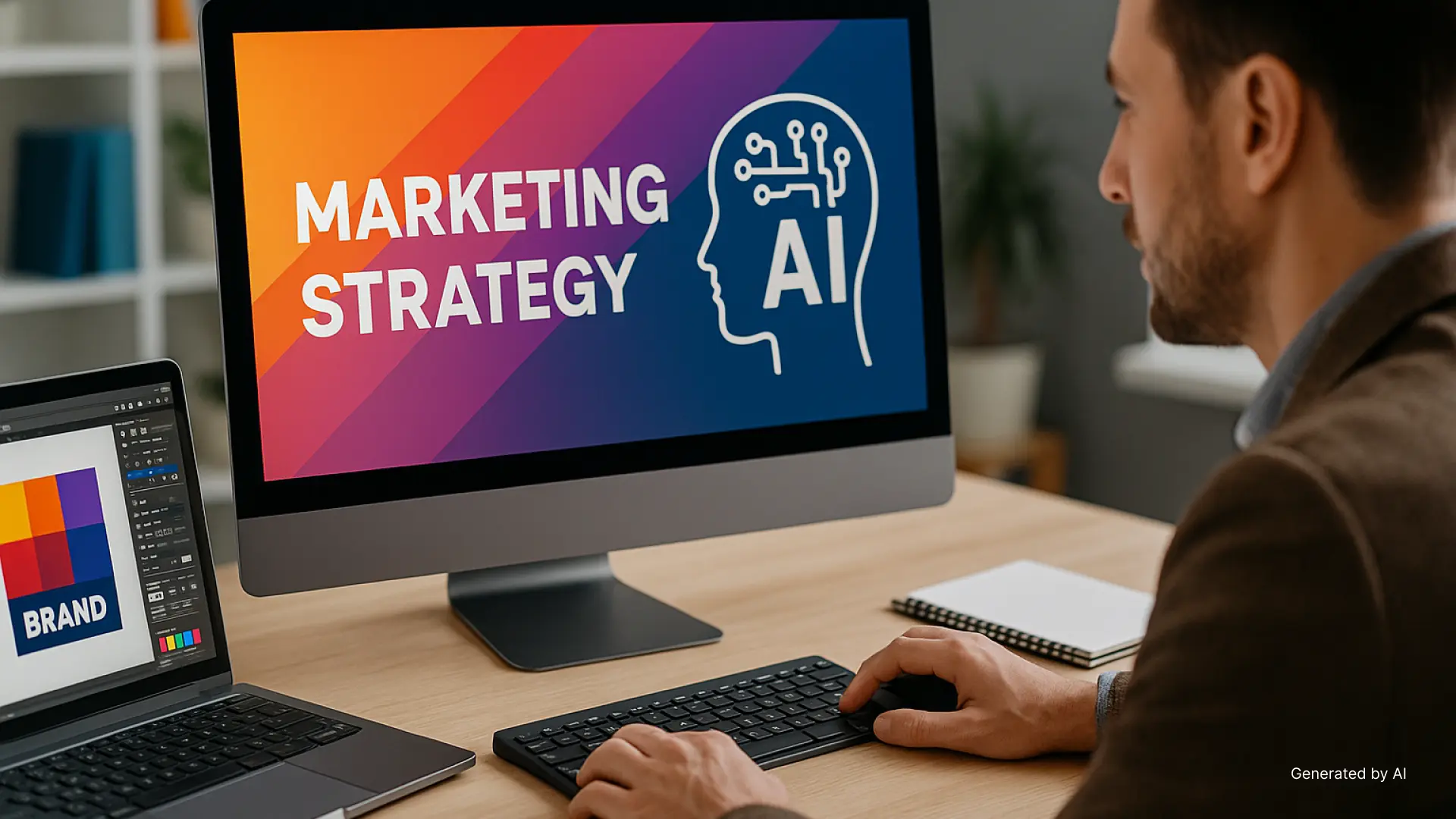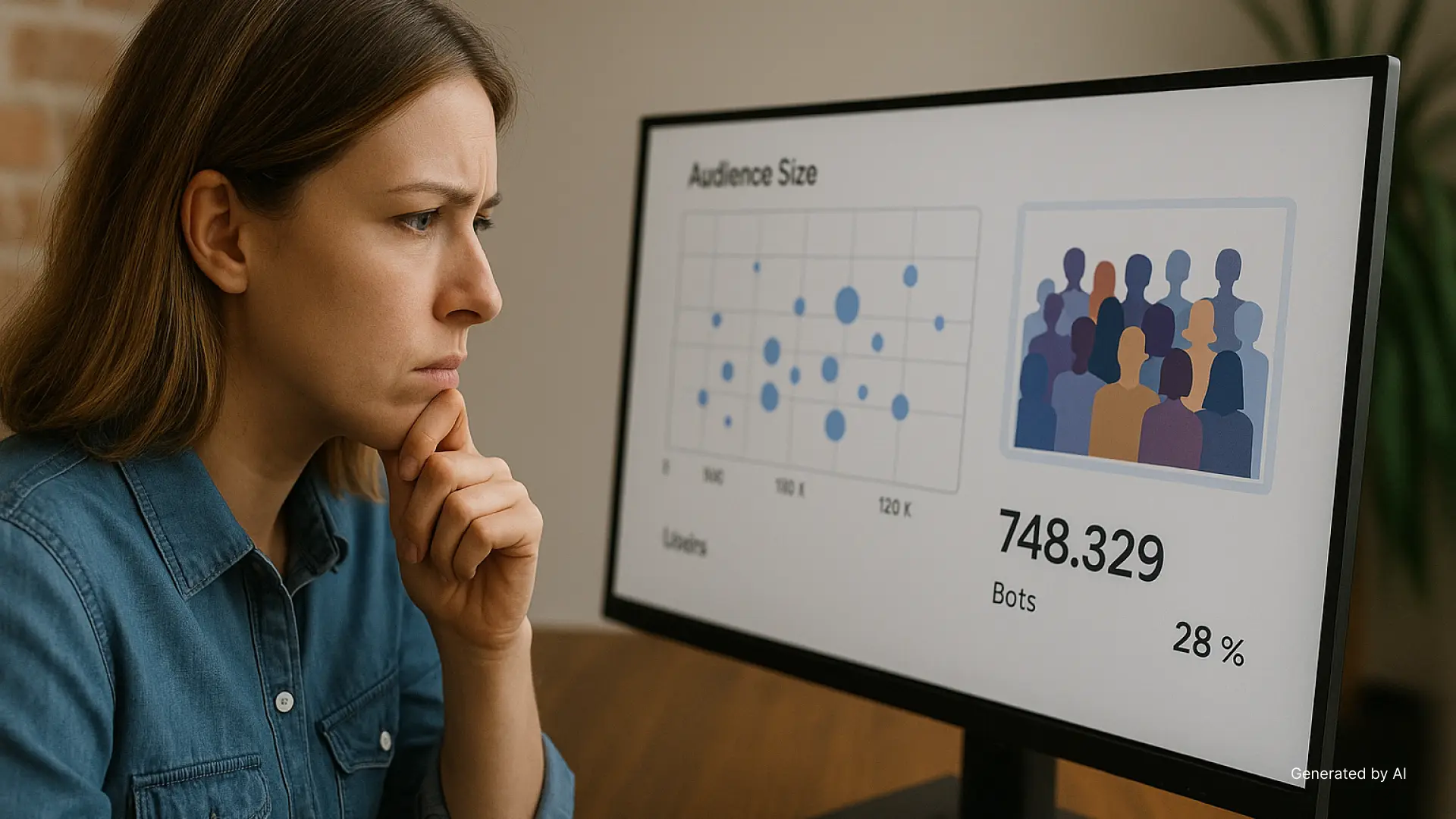AI Chatbots vs. Google: The New SEO Battlefield
The digital realm is in constant flux, but the current shift in the internet search landscape feels particularly seismic. At the heart of this transformation lies the rapid ascent of artificial intelligence (AI), challenging the long-established order of traditional search engine optimization (SEO). For years, businesses have meticulously crafted strategies to appease the algorithms of search engines like Google. Now, a new contender has entered the arena: AI chatbots and AI-powered search experiences. This report will delve into the evolving dynamics between these intelligent conversational agents and the dominant search engines, exploring the profound implications for SEO strategies in 2025 and beyond. The battle lines are being drawn, and understanding this new battlefield is crucial for any business aiming to maintain its online visibility and reach its target audience.
AI Chatbots: The New Search Interface
The perception of AI chatbots is rapidly evolving. No longer are they simply seen as tools for customer service or content generation. Instead, users are increasingly turning to them as primary sources of information, effectively utilizing them as search engines. This behavioral shift is fueled by the desire for more direct answers and personalized search experiences, something that AI chatbots are uniquely positioned to provide. Unlike traditional search engines that present a list of links, chatbots synthesize information and offer immediate responses, catering to the growing demand for efficiency and instant gratification.
While traditional search engines still command a significant share of overall usage, data from early 2025 reveals a remarkable surge in traffic to AI chatbot platforms. Between April 2024 and March 2025, the top 10 AI chatbots collectively garnered 55.2 billion visits, marking an impressive 80.92% year-over-year increase. This growth trajectory underscores a fundamental change in how users are approaching information retrieval. AI chatbots offer unique search functionalities that go beyond conventional text-based queries. Users can now input images or voice prompts, leading to more personalized and contextually relevant results. This capability caters to diverse user preferences and opens up new avenues for search that traditional engines are still adapting to. Furthermore, the diversification of search behavior is evident in the increasing adoption of AI-powered search within social media platforms like TikTok, Reddit, and Pinterest for specific information needs. This indicates that users are selecting platforms based on the type of content or community they seek, further fragmenting the traditional search landscape.
The increasing adoption of AI chatbots as search tools signifies a fundamental shift in user expectations, leaning towards more direct, conversational, and personalized information retrieval. Users are growing accustomed to the immediate and synthesized answers provided by chatbots, a stark contrast to the traditional search process of sifting through multiple links. This preference for efficiency and directness is a key driver of this change. While Google remains the dominant force in the search market, the rapid growth in AI chatbot usage presents a potential long-term challenge to this dominance. This necessitates that businesses consider optimizing their content not just for traditional search engines but also for these emerging AI-powered platforms. The key takeaway here is that search is no longer solely synonymous with Google. Businesses must broaden their understanding of the search landscape and adapt their strategies to account for the growing influence of AI chatbots.
Google Fights Back with AI-Powered Search
Recognizing the shifting tides, Google has proactively integrated AI features into its core search experience. The introduction of AI Overviews, previously known as Search Generative Experience (SGE), represents Google’s direct response to the rise of AI chatbots. This feature aims to provide users with quick and direct answers to their queries, mimicking the conversational and informative nature of AI chatbots, all within the familiar Google search interface. AI Overviews leverage Google’s advanced AI model, Gemini, to analyze and synthesize information from a multitude of sources across the web. This curated summary is then presented conversationally at the top of the search results page, offering users immediate insights without requiring them to navigate through multiple websites.
The prevalence of AI Overviews in Google’s search results has been steadily increasing since its initial rollout in 2024, and this trend is projected to continue its expansion throughout 2025. This growing presence signals Google’s commitment to this AI-powered feature and its increasing importance in the overall search results page. While the primary goal of AI Overviews is to enhance the user experience by providing instant and relevant information, their prominence can also lead to a notable decrease in organic click-through rates. Users who find the answer they need within the AI-generated summary may have less incentive to click on traditional organic search results. This shift has significant implications for established SEO strategies that have historically focused on achieving top rankings to maximize website traffic. In its ongoing efforts to enhance search functionality through AI, Google is also experimenting with features like an “Explain this result” button. This indicates a broader strategy to provide users with more context and understanding directly within the search results, further leveraging the capabilities of AI.
Google’s aggressive integration of AI into its search engine underscores its understanding of the evolving search landscape and represents a direct attempt to compete with the user experience offered by standalone AI chatbots. By implementing AI Overviews and other AI-powered features, Google aims to retain users within its ecosystem by providing immediate, synthesized answers, much like a chatbot. However, the rise of AI Overviews presents a complex scenario for SEO. While it poses a potential threat to traditional organic traffic, it also creates a new opportunity for businesses to gain visibility. By ensuring their content is recognized as a reliable and authoritative source, businesses can aim to be cited within the AI-generated summaries, effectively “ranking” within the AI Overview itself. The key takeaway for businesses is the critical need to closely monitor the evolution of Google’s AI-powered search features and proactively adapt their SEO strategies to ensure their content remains discoverable and valuable in this rapidly changing environment.
Mastering GEO: The Key to Future SEO
As AI platforms gain traction as viable alternatives to traditional search engines, a new discipline is emerging in the field of online visibility: Generative Engine Optimization (GEO). GEO represents a strategic shift in focus, concentrating on optimizing content specifically for AI platforms such as ChatGPT, Perplexity, Claude, and Gemini. The goal of GEO is to ensure that these AI systems can easily understand, extract, and ultimately cite a business’s content when generating responses to user queries. This is becoming increasingly vital for maintaining online visibility as users diversify their search methods beyond traditional engines.
GEO differs significantly from traditional SEO, which has historically centered on optimizing website content and structure for search engines like Google and Bing, primarily through keyword relevance and the acquisition of authoritative backlinks. In contrast, GEO places a greater emphasis on ensuring that AI systems grasp the broader context of the content, its relevance to a specific brand, and other nuanced layers of detail. To effectively implement GEO, businesses need to adopt a range of strategies. This includes conducting thorough research to understand how different AI engines operate and the types of content they tend to prioritize. Creating high-quality and authoritative content that directly answers user questions clearly and concisely is also paramount. Furthermore, structuring content in a way that facilitates easy interpretation by AI algorithms, such as using clear headings, lists, and concise paragraphs, is crucial. Strategic distribution of content across various platforms can also increase its exposure and likelihood of being indexed and cited by AI systems. The increasing prevalence of conversational search queries on AI platforms, which are typically longer and more natural than traditional keyword-based searches, necessitates that content be adapted to provide direct and comprehensive answers to these natural language questions.
The emergence of GEO signifies a fundamental evolution in the SEO landscape, compelling marketers to broaden their optimization efforts beyond the established realm of traditional search engines to encompass the growing influence of AI-powered platforms. Businesses that limit their focus solely to traditional SEO risk overlooking a substantial and rapidly expanding audience that is increasingly turning to AI for information. Effectively optimizing for GEO requires a deep understanding of the specific nuances of how different AI models process and prioritize information. This necessitates ongoing research and a willingness to adapt content strategies to align with the evolving preferences of these AI systems. The key takeaway for businesses is the imperative to embrace GEO as a critical and integral component of their overall SEO strategy in 2025. This proactive approach will be essential to ensure sustained visibility across both traditional search engines and the burgeoning landscape of AI-powered search platforms.
Adapting Your SEO Strategy for the AI Era
The rise of AI in search necessitates a fundamental shift in how businesses approach SEO. Traditional tactics that once guaranteed visibility are no longer sufficient in an AI-first world. A more nuanced and adaptive strategy is required, focusing on user intent, content quality, and optimization for both human users and AI algorithms.
Focusing on User Intent and E-E-A-T
AI algorithms, particularly those employed by major search engines like Google (BERT and MUM), are becoming increasingly adept at understanding the underlying context and intent behind user search queries. This signifies a move away from simple keyword matching towards a more sophisticated understanding of what users are truly seeking. Consequently, content creation must prioritize providing genuine value and directly addressing user questions naturally and comprehensively, rather than merely focusing on the strategic placement of keywords. Google’s Helpful Content Update further reinforces this shift, emphasizing the creation of original, people-first content that offers substantial value to readers. Content designed solely to manipulate search engine rankings is becoming increasingly ineffective. Central to success in the AI era is the concept of E-E-A-T (Expertise, Experience, Authoritativeness, Trustworthiness). AI algorithms are designed to prioritize credible and reliable sources, making it essential for businesses to demonstrate expertise and build trust within their respective industries. While AI can be a valuable tool in the content creation process, the human element of expertise, firsthand experience, and genuine originality remains crucial for meeting E-E-A-T guidelines and ultimately outperforming purely AI-generated content. The key takeaway is to prioritize creating user-centric content that not only answers their questions but also showcases genuine expertise and builds trust, as these are the cornerstones of success in the AI-driven search landscape.
Optimizing for Voice and Multimodal Search
The increasing adoption of virtual assistants like Alexa, Siri, and Google Assistant has led to a significant rise in voice search. Voice queries tend to be longer and more conversational than typed searches, requiring businesses to optimize their content for natural language and long-tail keywords. Furthermore, the search landscape is evolving beyond text-based queries to encompass multimodal search, which integrates text, voice, images, and videos. This necessitates that businesses expand their SEO efforts to include the optimization of various content formats. Optimizing images and videos with descriptive alt text and implementing appropriate technical markup are becoming increasingly important for ensuring discoverability in this multimodal search environment. Content strategies should focus on answering questions in a natural, conversational manner, mirroring how users speak to voice assistants. Optimizing for long-tail, question-based keywords will be particularly effective in capturing voice search queries. The key takeaway is to adapt content to accommodate voice queries and optimize multimedia for multimodal search to effectively reach a wider audience in the evolving search landscape.
The Importance of Structured Data
In the age of AI, implementing structured data and schema markup has moved beyond being simply a technical SEO best practice; it is now a critical element for ensuring content is properly understood and utilized by AI algorithms. Structured data helps search engines and AI platforms categorize and interpret the information on a webpage more effectively, making it easier for AI to extract key details and potentially feature the content in AI-generated responses. This can lead to enhanced visibility through rich snippets, knowledge panels, and entity associations in traditional search results as well. For e-commerce businesses, structured data is particularly crucial for providing detailed product specifications, user reviews, and other relevant information that AI shopping assistants can leverage to provide accurate and comprehensive product information to users. By providing clear and organized information through structured data, businesses significantly increase their chances of being featured in AI Overviews and other AI-generated summaries. AI algorithms rely on structured information to efficiently process and synthesize content, making schema markup an essential component for achieving visibility in AI-powered search. The key takeaway is to implement comprehensive, structured data markup across your website to enhance AI’s understanding of your content and improve its visibility in the evolving search landscape.
Jordie’s Creative Agency: Your Partner in Navigating the AI SEO Landscape
As the search landscape undergoes a dramatic transformation with the rise of AI chatbots, having a strategic and knowledgeable partner is more crucial than ever for businesses striving to stay ahead. Jordie’s Creative Agency offers a comprehensive suite of digital marketing services designed to help your business not only navigate but also thrive in this new AI-driven era. Our team of experts possesses the deep understanding and cutting-edge skills necessary to adapt your strategies and ensure your continued online success.
Our expertise encompasses a full spectrum of digital marketing solutions, including:
- Social Media Marketing: We design and deliver impactful social media strategies that strengthen your brand identity and build authentic engagement across the platforms your audience uses most.
- Pay-Per-Click (PPC) Services: Our performance-driven PPC campaigns are tailored to precisely target your ideal audience, optimising ad spend and maximising ROI through strategic paid placements.
- Brand Positioning and Logo Design: We develop distinctive brand identities and logos that articulate your unique value and connect with your audience on a deeper, more meaningful level.
- Website Design and Development: We build responsive, visually stunning websites that are search engine optimised and engineered to deliver intuitive, high-performance user experiences.
- Content Marketing Services: Our content strategies are built around insightful, value-driven storytelling that captures attention, nurtures trust, and positions your brand as a thought leader in the AI-first era.
- UI/UX Design: We craft clean, user-centric interfaces and seamless digital experiences that not only look great but also convert visitors into loyal customers.
- Video Marketing: We harness the storytelling power of video to produce dynamic, platform-tailored content that boosts brand recall and deepens audience engagement.
Contact us today to explore how Jordie’s Creative Agency can be your trusted partner in navigating the complexities of the AI-driven search landscape and help your business achieve sustained growth and success.
The Changing Metrics: Traffic in the Age of AI
The way users find information online is undergoing a significant transformation, and this shift is having a direct impact on traditional website traffic metrics. The increasing prominence of AI Overviews and other AI-generated answers has led to a notable rise in “zero-click” searches. In these instances, users obtain the information they need directly from the search results page, without any need to click through to external websites. This trend is causing considerable concern among marketers who have long relied on organic traffic as a key indicator of online success.
Recent statistics from 2024 and early 2025 highlight the growing impact of this phenomenon. A significant percentage of searches now conclude without a click, and AI Overviews are appearing in a substantial portion of Google search results. While this trend suggests a potential decrease in organic traffic from traditional search, it’s important to note the emergence of new traffic sources stemming from AI answer engines like ChatGPT and Perplexity. This indicates a fundamental shift in where businesses need to focus their optimization efforts to effectively capture relevant user engagement. Consequently, the traditional focus of SEO, which has often centered on tracking website traffic as the primary metric of success, may need to evolve. In the age of AI, metrics such as brand visibility within AI-generated answers, the frequency of citations by AI platforms, and the conversions driven by interactions with AI systems may become more accurate indicators of effective online presence.
The increase in zero-click searches, driven by the rise of AI-generated answers, necessitates a critical re-evaluation of traditional SEO metrics. Businesses can no longer solely rely on website traffic as the ultimate measure of success. Instead, the focus must shift towards optimizing for visibility within AI-powered search results, aiming to be the recognized and cited source of information rather than simply striving for the top position in the traditional list of links. While zero-click searches are indeed on the rise, the emergence of AI answer engines as new and potentially significant traffic sources presents a valuable opportunity for businesses to adapt their SEO strategies and tap into these evolving user behaviors. By strategically optimizing for platforms like ChatGPT and Perplexity, businesses can potentially reach users who might not typically engage with traditional search results, opening up new avenues for audience engagement and brand building. The key takeaway is to understand the profound implications of zero-click searches and proactively adapt your SEO strategy to prioritize being a recognized and authoritative source in AI-generated answers, while also actively exploring the burgeoning traffic opportunities presented by AI answer engines.
The Road Ahead: What the Future Holds for Search
Looking ahead, the integration of AI into the search landscape is poised to deepen further. Experts predict a continued expansion of AI’s role in search results, with AI Overviews becoming an even more ubiquitous feature of the search experience. This suggests that the current trend towards AI-powered information delivery is not a fleeting phenomenon but rather a fundamental shift in how users interact with online information. Furthermore, answer engines are anticipated to emerge as significant non-Google traffic sources, underscoring the growing importance of embracing Generative Engine Optimization (GEO) strategies to ensure visibility on these platforms.
Despite the transformative impact of AI, traditional search engines like Google are expected to maintain their relevance, particularly for middle and bottom-of-the-funnel activities such as in-depth product research and comparative shopping. This indicates that a balanced and comprehensive SEO strategy that effectively caters to both AI-powered platforms and traditional search engines will be essential for long-term success. The increasing influence of AI in search might also lead to a more commercially competitive environment on platforms like Google, potentially driving up the cost of paid advertising. This scenario would further emphasize the enduring value of robust organic strategies that incorporate effective AI optimization techniques. Ultimately, the future of search may well involve a dynamic coexistence of multiple search engines, including a variety of AI-powered platforms, each possessing its unique characteristics and nuances that will necessitate tailored optimization approaches.
The future of search will likely be characterized by a hybrid model where AI-powered platforms and traditional search engines coexist, each serving distinct user needs and search intents. While AI demonstrates remarkable capabilities in providing quick, synthesized answers and summaries, traditional search engines are expected to remain vital for more in-depth research and specific types of queries. Consequently, SEO in the future will demand a broader and more versatile skillset. Professionals in this field will need to possess not only a strong foundation in traditional optimization techniques but also specialized expertise in optimizing for AI algorithms and navigating the intricacies of various AI-powered search platforms. Marketers will need to remain continuously informed about the latest advancements in AI and proactively adapt their strategies to ensure sustained visibility across the entire evolving search landscape. The key takeaway is to prepare for a future where AI is deeply integrated into the fabric of the search experience, while recognizing that traditional search engines will continue to play a significant role. Developing a comprehensive and adaptable SEO strategy that addresses both aspects will be crucial for achieving long-term success in this dynamic environment.
Conclusion: Embracing the AI Revolution in Search with Jordie’s Creative Agency
The ascent of AI chatbots is undeniably revolutionizing the search landscape, presenting a unique blend of challenges and opportunities for businesses. Adapting your SEO strategy to embrace Generative Engine Optimization (GEO) and prioritizing key elements such as user intent, E-E-A-T, optimization for voice and multimodal search, and the strategic implementation of structured data are now critical for maintaining and enhancing online visibility. While the rise of “zero-click” searches presents a shift in traditional traffic metrics, the emergence of new traffic sources from AI answer engines offers exciting new avenues for engagement. The future of search will likely be defined by the synergistic coexistence of AI-powered platforms and traditional search engines, demanding a comprehensive and adaptable approach to SEO. Jordie’s Creative Agency stands ready to be your trusted partner in navigating this rapidly evolving digital landscape. Our deep expertise in SEO, content marketing, social media marketing, and a full suite of digital marketing services ensures that your business not only keeps pace but stays ahead of the curve in the age of AI.
Ready to future-proof your SEO strategy in the age of AI? Contact Jordie’s Creative Agency today for a consultation.








